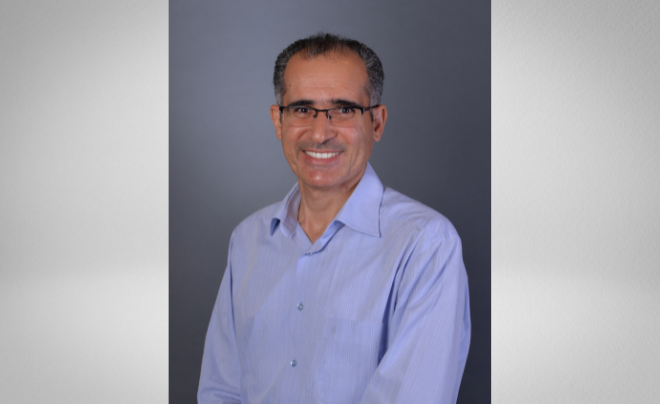Cardinal Math Talk with Guest Speaker Dr. Md Rafiul Islam
 Dr. Suleyman Tek, professor of Mathematics and chair of the Department of Mathematics and Statistics, hosted a Cardinal Math Talk session on Oct. 28 with guest speaker Dr. Md Rafiul Islam, postdoctoral research associate of Mathematics at Iowa State University. Islam’s topic was a “Mathematical model of COVID-19 transmission with vaccination and optimal vaccine allocation strategy with limited supply.”
Dr. Suleyman Tek, professor of Mathematics and chair of the Department of Mathematics and Statistics, hosted a Cardinal Math Talk session on Oct. 28 with guest speaker Dr. Md Rafiul Islam, postdoctoral research associate of Mathematics at Iowa State University. Islam’s topic was a “Mathematical model of COVID-19 transmission with vaccination and optimal vaccine allocation strategy with limited supply.”
“During the Fall 2020 semester, the Department of Mathematics and Statistics started a virtual departmental colloquium series called Cardinal Math Talk," explained Tek. "We invite experts from mathematics, mathematical biology, statistics, and data science to share their research, as well as their professional experiences, with UIW students, faculty and staff.”
Through these seminars, current UIW students have the chance to meet people from the industry, university, and K-12 education system. Students see how mathematics is used in many different fields and what professional life looks like. The seminars also give them an idea of what kind of career they would like to pursue after they graduate, allowing them to plan for that career path. In addition, it allows faculty members to interact with the speaker and find possible collaboration opportunities.
Islam presented how the team developed a compartmental disease model that incorporates key elements of the current pandemic, including age-varying susceptibility to infection, age-varying clinical fraction, an active case-count dependent social distancing level, and time-varying infectivity (accounting for the emergence of more infectious virus strains).
Islam highlighted that the developed approach can be used to inform the design of future mass vaccine rollouts in the United States or adapted for use by other countries seeking to optimize the effectiveness of their vaccine allocation strategies.
“For the talk on October 28, we had 37 participants,” added Tek. “We had student and faculty participation from diverse UIW programs including Mathematics, Statistics, Biology, Chemistry and Biochemistry, Meteorology, Rehabilitative Science and the School of Osteopathic Medicine. Dr. Islam talked about mathematical modeling of alternative vaccination goals, including minimizing mortality, cases, infections, and years of life lost (YLL). We had great questions from participants about how to build the model and how to conduct simulations. Participants shared that they enjoyed the talk and learned about alternative vaccination strategies and how modeling helps public health decisions.”
Islam is with the Department of Mathematics at Iowa State University. He completed his Ph.D. at Texas Tech University and worked as a visiting scientist at Los Alamos National Lab. He was also a visiting scholar at the Center for Global Health at the University of New Mexico Health Science. Islam’s research interests are Mathematical Modeling of Infectious Diseases, Gene Regulatory Network, Social Network Modeling, Microscopic Car-following Models, and Fractional Differential Equations. Islam uses dynamical system theory and tools to develop, analyze, and interpret complex physical and biological systems.
According to Islam’s abstract, anticipating an initial shortage of vaccines for COVID-19, the Centers for Disease Control (CDC) in the United States developed priority vaccine allocations for specific demographic groups in the population. Islam discussed evaluating the performance of the CDC vaccine allocation strategy with respect to multiple potentially competing vaccination goals (minimizing mortality, cases, infections, and years of life lost (YLL)).

